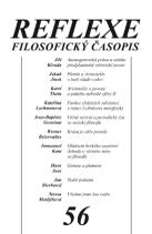Aristotle´s Principle of Contradiction in Book IV of the Metaphysics
The paper interprets Aristotle’s account of the Principle of Contradiction in Book IV of Metaphysics. The Principle of Contradiction expresses a noetically optimistic point of view, a belief to be impossible to encounter something thoroughly incomprehensible. Aristotle’s plea for the validity of the principle does not invoke its logical necessity but rather the unwelcome speech situation consequent upon its denial. The acceptance of the Principle of Contradiction is based on the preference of understandability to absurdity, and thereby it parallels the choice of the Good in Sokrates’ ethics. An opponent of the principle is unable to discourse, and therefore also unable to think, as thought is a dialog with oneself.
Backlinks: Reflexe 25
